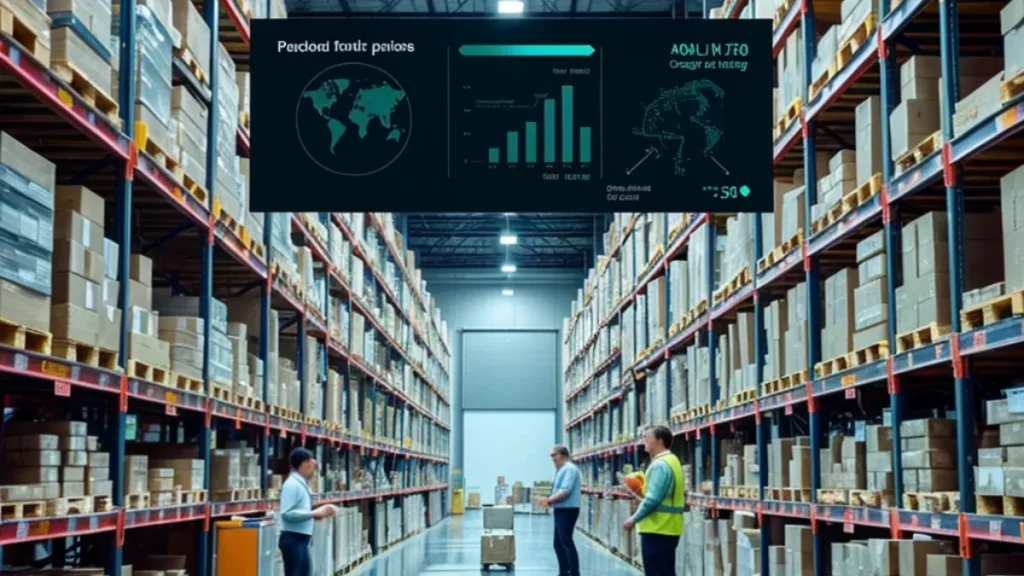Table of Contents
Logistics softwares, has become the backbone of efficient supply chain management in today’s fast-paced global market. From managing transportation and warehousing to planning supply chains and ensuring timely last-mile delivery, logistic software solutions are revolutionizing businesses’ operations. This guide delves into the various categories of logistic software, its benefits, essential features, and future trends, providing you with the knowledge needed to make informed decisions for your business.
Key Logistic Softwares Categories
Transportation Management Systems (TMS)
Transportation Management Systems (TMS) are crucial for optimizing the movement of goods. These systems streamline route planning, carrier selection, and freight auditing, helping businesses reduce costs and improve delivery times.
Warehouse Management Systems (WMS)

Warehouse Management Systems (WMS) are designed to manage and optimize warehouse operations. From inventory management to order fulfillment, WMS solutions ensure that warehouses operate efficiently, reducing errors and improving productivity.
Yard Management Systems (YMS)
Yard Management Systems (YMS) focus on effectively managing a company’s yard operations. These systems provide visibility and control over the movement of vehicles and goods within the yard, improving turnaround times and reducing bottlenecks.
Supply Chain Planning Software (SCPS)
Supply Chain Planning Software (SCPS) helps businesses forecast demand, plan production, and manage inventory levels. By optimizing these processes, SCPS ensures that businesses can meet customer demands without overstocking or understocking.
Last-Mile Delivery Software
Last-Mile Delivery Software is essential for managing the final step of the delivery process. These solutions focus on optimizing routes, managing delivery personnel, and ensuring that goods reach customers on time, enhancing customer satisfaction.
Benefits of Implementing Logistic Softwares
Improved Efficiency and Productivity
Logistic softwares automates many manual processes, significantly improving efficiency and productivity. By optimizing routes, managing inventory, and streamlining operations, businesses can do more with less.
Enhanced Visibility and Transparency
With real-time tracking and monitoring features, logistic softwares provides enhanced visibility into the supply chain. This transparency allows businesses to make informed decisions, quickly respond to issues, and improve overall supply chain performance.
Reduced Costs and Waste
Logistic softwares helps businesses cut costs and minimize waste by optimizing processes and reducing errors. Operations become more effective as a result, and profits increase.
Better Customer Satisfaction
Logistic softwares ensures that goods are delivered on time and in perfect condition, leading to higher customer satisfaction. Features like real-time tracking also give customers the visibility they need to feel confident in their purchases.
Increased Agility and Adaptability
In a rapidly changing market, the ability to adapt quickly is crucial. Logistic softwares provides the tools businesses need to respond to changes in demand, supply chain disruptions, and other challenges.
Essential Features to Look for in Logistic Softwares

Real-time Tracking and Monitoring
Real-time tracking is essential for managing the movement of goods and ensuring timely deliveries. Look for software that offers comprehensive tracking features to keep your supply chain running smoothly.
Integration with Existing Systems
Your logistic softwares should integrate seamlessly with your existing systems, such as ERP or CRM platforms. This ensures that all your business processes work together harmoniously.
Scalability and Flexibility
Your logistics softwares should evolve with your company as it expands. Select a system that can easily be adjusted to meet your changing demands.
Advanced Analytics and Reporting
Analytics and reporting features are crucial for understanding your supply chain performance. Look for software that provides detailed insights and customizable reports to help you make data-driven decisions.
User-Friendly Interface
A user-friendly interface ensures your team can use the software effectively. Select an intuitive and user-friendly solution.
Also Read: Track And Field Macro: Magic Transform Your Training Today
Case Studies: Successful Implementations
Company A: Increased On-Time Delivery Rates
Company A implemented a TMS that optimized their route planning and carrier selection processes. As a result, they saw a significant increase in on-time delivery rates, enhancing customer satisfaction.
Company B: Reduced Inventory Costs
Company B could better manage its inventory levels by implementing a WMS, reducing overstock, and minimizing carrying costs. This led to substantial savings and more efficient warehouse operations.
Company C: Improved Customer Satisfaction
Company C used Last-Mile Delivery Software to optimize delivery routes and improve customer communication. This resulted in faster deliveries and higher customer satisfaction rates.
Choosing the Right Logistic Software

Assessing Your Specific Needs
Before choosing logistic software, assess your specific business needs. Consider your current challenges, future goals, and the particular features to help you achieve them.
Considering Cost and ROI
Cost is always a factor, but it’s also essential to consider the return on investment (ROI). Choose a solution that offers the best balance of cost and benefits for your business.
Evaluating Vendor Reputation and Support
The reputation and support offered by the vendor are crucial factors to consider. Choose a vendor with a proven track record and strong customer support to ensure a successful implementation.
Future Trends in Logistic Technology
Artificial Intelligence and Machine Learning
AI and ML transform logistics by enabling predictive analytics, automating processes, and improving decision-making. These technologies will continue to play a vital role in the future of logistics.
Internet of Things (IoT) and Blockchain
IoT and blockchain technologies offer enhanced visibility, security, and efficiency in logistics. IoT devices provide real-time data on goods in transit, while Blockchain ensures secure and transparent transactions.
Autonomous Vehicles and Drones
Drones and autonomous cars are going to change last-mile deliveries. These technologies promise faster, more efficient deliveries, reducing reliance on human drivers and minimizing delivery times.
Closing Thoughts
Logistic software is essential for businesses looking to improve their supply chain operations. By understanding the different categories, benefits, and future trends, you can choose the right solution to meet your needs and stay ahead in a competitive market.
FAQs:
What is logistic software?
Logistic software is a digital tool designed to manage and optimize the supply chain, from inventory control to transportation management, ensuring efficient operations.
How does logistic software benefit businesses?
They streamline operations, reduce costs, improve delivery times, and provide real-time insights, enhancing overall supply chain efficiency.
Are logistic software customizable?
Yes, most logistic software can be tailored to meet specific business needs, adapting to different industries and operational requirements.
Does logistic software integrate with existing systems?
Many logistic software seamlessly integrate with existing ERP, CRM, and warehouse management systems for smooth operations.

